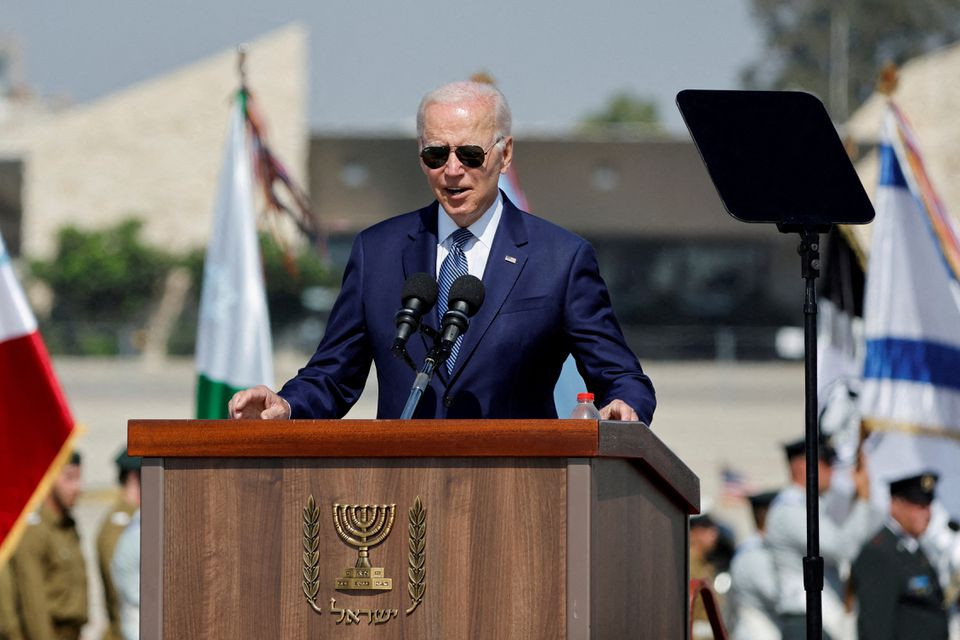
US: After years of disagreements over international diplomacy with Tehran, U.S. President Joe Biden and Israeli Prime Minister Yair Lapid will join forces on Thursday to sign a joint declaration promising to keep Iran from obtaining nuclear weapons.
In an apparent effort to accomodate Lapid’s requests for world powers to convey a “serious military threat” to Israel’s arch enemy, Biden, who is in Jerusalem, stated on Wednesday that he was open to using action against Iran as a “last resort.”
Such subliminal warnings against Iran—which denies seeking nuclear weapons—have been made by the United States and Israel independently for years. Formally expressing the discourse may increase mutual action commitment and deterrent.Biden might benefit from the demonstration of American and Israeli strength when he visits Saudi Arabia on Friday. Biden aims to use Riyadh’s concerns about Iran to foster a reconciliation between Israel and Saudi Arabia under American sponsorship.
According to a U.S. official, “I believe what you’ll see in the joint declaration is a pledge and a commitment never to permit Iran to acquire a nuclear weapon and that we’re willing to deploy all aspects of our national might to secure that outcome.”Iran agreed to a global agreement in 2015 that capped projects with the capacity to make bombs. When Donald Trump, then-president of the United States, withdrew from the agreement in 2018, Israel applauded his decision.
Since then, Iran has intensified some nuclear programmes, making it more difficult for the world’s powers to reach a deal during the Vienna talks. Israel has recently stated that it will support a new agreement with stricter clauses. Iran has refused to comply with new restrictions.
In an interview with Israeli television on Wednesday, Biden stated, “The only thing worse than the Iran that exists now is an Iran with nuclear weapons. If we can return to the deal, we can hold them tight.”According to certain Israeli and Gulf Arab officials, the sanctions relief from the deal will provide Iran additional money to assist proxies in Lebanon, Syria, Yemen, and Iraq. They doubt that the Biden administration will take significant action to restrain Iran’s regional actions.






